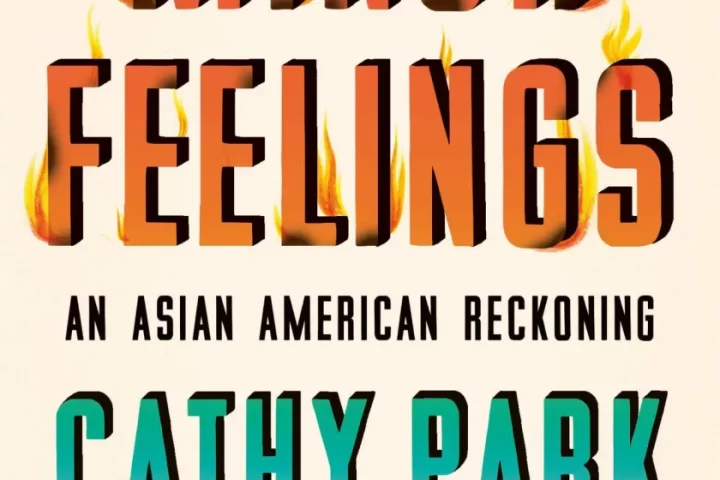
Unmastering English: On the Work of Cathy Park Hong
January 25, 2022
This essay is part of a series in which Seattle Arts & Lectures partners with Poetry Northwest to present reflections on visiting writers from SAL’s 2021/22 Season. On Friday, January 28, Cathy Park Hong will be in conversation with Ijeoma Oluo at Langston Performing Arts Institute, and the event will also be streamed live. Although in-person tickets are sold out, this event is available to attend online through February 4 at 7:30 p.m. (PT)—get your tickets here!
By Paul Hlava Ceballos
An ambitious ask: can an artist innovate language formally and challenge American aggression?
Essentially, does poetry have power versus empire; does prose?
Is writing against imperialism impossible while living inside it?
O how to account for our country’s immoral onset, born of monied sordor, of sundown counties, of courts’ bloodthirsty, constitutional horrors, considering one’s othered or group opts to other others too?
* * *
Because formal prowess is the first thing that comes to mind when I think of Cathy Park Hong’s work, I begin this essay with questions that borrow their form from ballads Hong has written in which every word includes the letter a or i or o. Within her three books of poetry—Translating Mo’um, Dance Dance Revolution, and Engine Empire—as well as Minor Feelings: An Asian American Reckoning (a book of essays that won the 2020 National Book Critics Circle Award), Hong has explored fiction and autobiography, sonnets and abecedarians, as well as an entire book in an invented creole. Yet within in this range of forms, I find harmony in Hong’s narratives and how she cares for people. The poet speaks up—and out: “I’s unpeel mine insides fo one clean note / tru all de marshy crowd sounds, tru all de trademark / cowed libel.”
What struck me rereading Hong’s poetry and Minor Feelings is her mastery as a storyteller. Narrative is often found within the linguistic leaps and formal innovations of her verse. There are revolutionaries and refugees of war. A young sharpshooter grows callus to killing in the American west. Patterns arise that speak to each other across forms and genres. In the essay “The Indebted,” Hong writes of American GIs storming her grandfather’s home looking for communists. Her family survived because the interpreter recognized her uncle. “My hut was trampled by American troops,” she writes in Dance Dance Revolution. “But then I recognized their translator / an old school chum. I begged him, / ‘You know me, why are they doing this?’ / He recognized me and took the Officer aside, / and whispered to him in English. / Like a miracle, they rested their guns and walked out the door. / Me fadder sees dis y decide to learn Engrish righteo dere.”
To understand Hong’s formal and linguistic innovation, it’s important to understand who sits at the focus of her storytelling. They might be Black people and Korean immigrants living under the conditions that caused the 1992 Los Angeles riots, workers living in unfinished high-rise apartments in the fictional city of Shangdu, or an Indigenous child in the era of American westward expansion. Hong’s essays and poems ask how to write about a country’s murderous onset, when the bloody order continues? When writing about tour guides in a fictionalized DMZ desert, Hong shifts her critique beyond America’s border to American empire abroad, as well as empire everywhere, a trajectory that reaches toward global solidarity. And within this reach, language arises. In her essay “Bad English,” Hong writes about mistranslations sometimes posted as jokes by tourists visiting Asian countries: “It was once a source of shame, but now I say it proudly: bad English is my heritage. I share a literary lineage with writers who make the unmastering of English their rallying cry—who queer it, twerk it, hack it, Calibanize it, other it by hijacking English and warping it to a fugitive tongue. To other English is to make audible the imperial power sewn into the language, to slit English open so its dark histories slide out.”